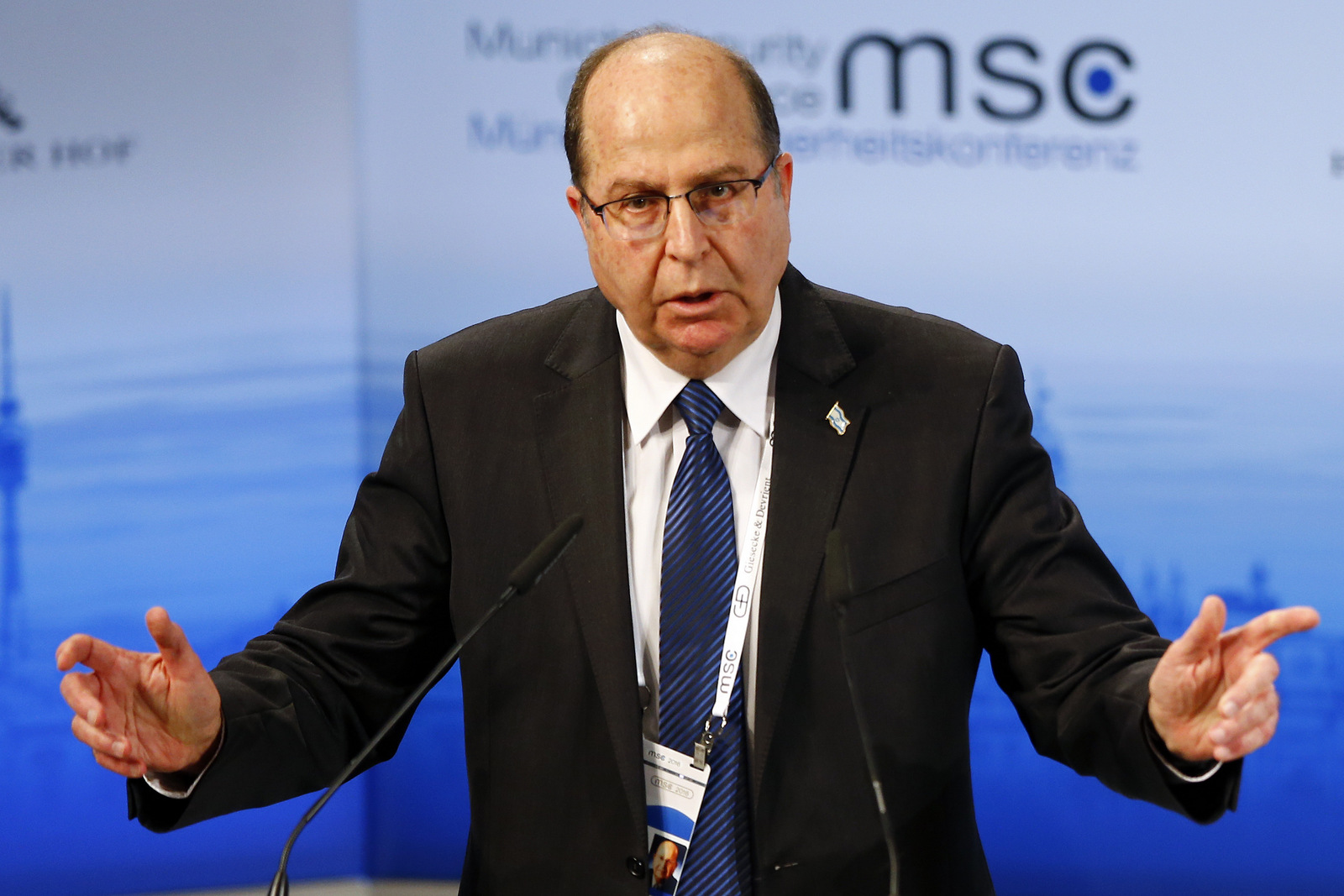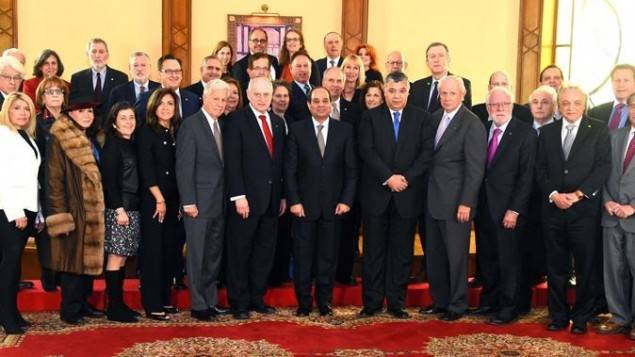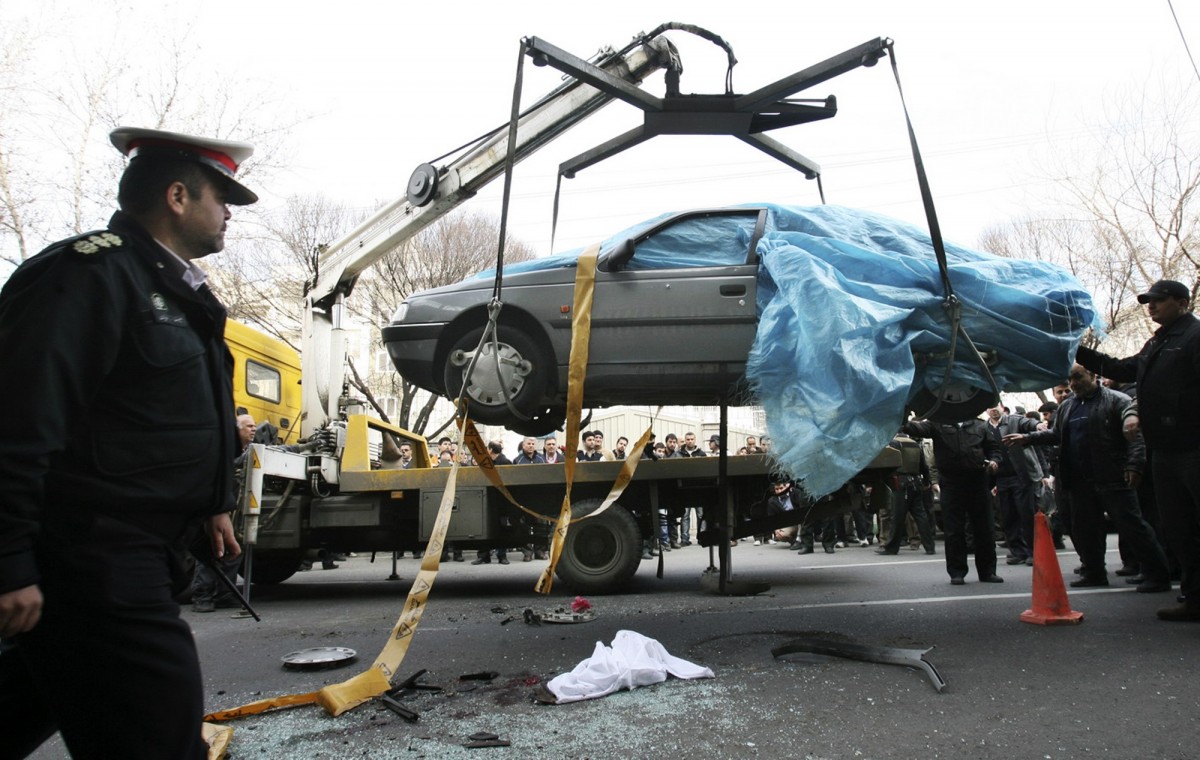Israel’s Defense Minister Exposes Israel’s Divide-And-Conquer Regional Strategy
by Richard Silverstein, MintPress, February 19, 2016. In addition to blowing the cover on Israel’s secret dealings with the Gulf states to target Iran, the defense minister expressed Israel’s hope that Syria might be divided up into ethnic enclaves, each ruled by mini-warlords.


Moshe Yaalon, Defence Minister of Israel, gestures during his speech at the
Security Conference in Munich, Germany, Sunday, Feb. 14, 2016.
(AP Photo/Matthias Schrader)
SEATTLE (ANALYSIS) — Israel’s defense minister spoke with uncharacteristic bluntness recently as he outlined Israel’s geopolitical strategy regarding two critical fronts in the nation’s relations with its neighbors: the Saudi-Iran proxy war and Syria.
Speaking at the annual Munich security conference, Moshe Ya’alon was even so bold as to blow the cover onIsrael’s secret dealings with the Gulf states, chief among them Saudi Arabia. He trumpeted Israel’s inroads into the Salafist Sunni Arab world, Haaretz reported:
“The defense minister noted channels of communication that Israelis have with neighboring Sunni Arab countries. ‘Not only Jordan and Egypt,’ he noted. ‘I speak about the Gulf states and North African states too. … For them, Iran and the Muslim Brotherhood are the enemy. … Iran is the bad guy for us and for the Sunni regimes. They are not shaking hands [with Israelis] in public, but we meet in closed rooms.’”
Though the defense minister did not expound upon this point, such a strategy is part of Israel’s attempt to divide and conquer the region in order to maintain its own sway. If the Sunni and Shiite worlds are at each other’s throats, it becomes much easier for Israel to pursue its own interests, which primarily revolve around maintaining a permanent occupation of historic Palestine.
Ya’alon, a bluff and blustery former Israeli Defense Forces chief of staff, is not known for nuance or diplomatic tact. His presumption in telling a major international security conference that Israel had essentially co-opted the Gulf states was a bit too much for the senior Saudi representative, former security chief Prince Turki al-Faisal. But al-Faisal’s response took the form more of a slap on the wrist than a genuine rebuff. Haaretz reported:
“Prince Faisal … asked for permission to speak. Handshakes with Israelis have not helped the Palestinians much, he said. Ya’alon was correct with regard to his comments regarding the animosity between the Sunni countries on one hand and Iran and the Muslim Brotherhood on the other … but … by the same measure the Sunni Arab countries are furious with Israel over the occupation and its treatment of the Palestinians. ‘Why should the Arabs feel friendship to you when you do that [to the Palestinians]?’ he asked.”
Israeli defense minister rejects link between Palestine, larger regional conflicts
The former general then offered the conventional Israeli response in similar situations: Palestine has nothing to do with developments in the rest of the region.
Ya’alon maintained there was no connection between the Israeli-Palestinian conflict and current problems elsewhere in the Middle East. He argued:
“There is a conflict with the Palestinians – but what is the linkage between this and the Iranian revolution? ISIS [the Islamic State organization] has a connection to the conflict? The civil war in Syria or the uprising in Tunisia? The situation in Yemen or Iraq? There is no connection.”
Ya’alon’s response was unconvincing at best. Think how Jews in the Diaspora reacted when they believed Israel’s existence was threatened just before the 1967 War. Israel’s coffers were filled with today’s equivalent of billions of dollars in contributions. Young people dropped their lives to travel there to help the war effort. Thousands of Jews eventually decided to make aliyah, or emigrate, in solidarity.
If this was true for Diaspora Jews, why would the Arab world not feel precisely the same way about Palestine? What holds true for Israel’s relationship with the Diaspora holds equally true for the Arab world. Palestine’s continuing subjugation may not be the 800-pound gorilla in the room, but it is a hefty obstacle undermining regional stability.
No less a figure than Vice President Joe Biden and two of America’s then-most senior generals agreed with such an assessment, warning in 2010 that Israel’s continuing rejectionism endangered the lives of U.S. troops in the region.
 |
| Israeli Defense Minister Yaalon shakes hands with former Saudi intelligence chief, Turki al-Faisal. (Photo: Ariel Harmoni/ Israel Defense Ministry) |
But the wide smiles which graced both the faces of Ya’alon and al-Faisal as they shook hands after their colloquy spoke volumes about the real import of the interaction. The Saudi remonstrance was just for show; the Palestinians are an expendable commodity for them. What worries Israel more than occupation is Iran. And if Israel can help them against Iran, the Saudis will jettison their Arab brothers in Palestine.
Uniting against Iran
For years, the Saudis have maintained a semi-covert relationship with Israel. They have coordinated strategy in their joint fight against Iran. The Saudis are reputed to have invested $1 billion to support Israel’s assassination campaign against Iranian nuclear scientists and the Stuxnet sabotage operation against the Iranian nuclear program. Top intelligence officials have met secretly in Israel and elsewhere.
 |
| People gather around a car as it is removed by a mobile crane in Tehran,
Iran, Wednesday, Jan. 11, 2012. Two assailants on a motorcycle attached
magnetic bombs to the car of an Iranian university professor working at a
key nuclear facility, killing him and wounding two bystanders.
(AP Photo/Fars News Agency, Meghdad Madadi)
|
Besides the religious schism between Sunni and Shiite Islam which fuels the rivalry between Riyadh and Tehran, there is an even more potent economic factor driving the enmity: oil. Saudi Arabia is one of the largest exporters of oil in the world, and oil happens to be the only thing the mono-economy has that the world wants.
The House of Saud also views itself as a regional power and leader of the Muslim world. Now emerging from decades of international isolation, Iran has promised to ramp up oil production to 1 million barrels a day in an already depressed oil market.
Further, Iran has everything going for it which Saudi Arabia does not: youth; an entrepreneurial economy; technical know-how; a well-educated population; and an openness to the outside world. In regional terms, Iran is on the way up and Saudi Arabia on the decline. All of these factors contribute to stoking Saudi hatred of the Iranians.
When the Saudis sought to pressure the United States not to broker the P5+1 nuclear deal, they let it be known that they and Israel were prepared to go it alone in the fight; even if it might mean attacking their Shiite enemy.
Egyptian dictator cozies up to Netanyahu
The Republican mega-donor Sheldon Adelson’s Israeli paper, Makor Rishon, reported (in Hebrew; English version can be found here) that the U.S.-based Conference of Presidents of Major Jewish Organizations recently visited with Egyptian dictator Gen. Abdel-Fattah el-Sissi in Cairo. During the meeting, the Egyptian leader reportedly told them:
“[Israeli Prime Minister Benjamin Netanyahu] is a leader with enormous strengths which aid him not only in leading his own country, but to advance the region itself and the whole world.”

Egyptian dictator al-Sisi meets with Israel Lobby leaders after praising Netanyahu for his “leadership” of the world.
These are Israel’s allies in the region: the dictators, the inbred royal families, the oligarchs, the warlords, and the Nusra Front, al-Qaida’s affiliate in Syria. What does it say about Israel itself that it gravitates toward strongman rulers and away from the the region’s democracies and Arab Spring activists?
The Conference of Presidents’ chairman, Stephen Greenberg, offered el-Sissi the quid pro quo kiss of legitimacy he was seeking back in Washington when he said:
“I … think it would be very important for the American administration to welcome President Sisi at some point to the United States. That would be a major boost to them.”
Israel advocates cantonization of Syria
Defense minister Ya’alon dropped another bombshell in Munich when he declared the Israel views the Syrian ceasefire brokered by Russia and the U.S. with as much skepticism as it views the nuclear agreement with Iran. The defense minister said that the best outcome in Syria, as far as Israel was concerned, was for the country to be divided into smaller cantons ruled by individual ethnic groups. Reuters quoted him as saying:
“Unfortunately we are going to face chronic instability for a very, very long period of time. And part of any grand strategy is to avoid the past, saying we are going to unify Syria. We know how to make an omelette from an egg. I don’t know how to make an egg from an omelette.”
According to Reuters, he continued: “We should realise that we are going to see enclaves – ‘Alawistan’, ‘Syrian Kurdistan’, ‘Syrian Druzistan’. They might cooperate or fight each other.”
A few years into the Syrian civil war, I speculated that Israel’s goal was for Syria to disintegrate into small ethnic enclaves, each ruled by mini-warlords. This would defang Syria as a unified nation, disable any attempt to project Syrian power in the region, and disrupt Israeli geostrategic interests. Most important, it would short-circuit Syria’s ongoing determination to wrest the Golan from Israel, territory seized from it in 1967.
This is a plan which Israel has followed for decades. Prior historical examples include the creation of the Southern Lebanese Army to enforce Israel’s territorial encroachment on Lebanon from 1982 until 2000, when the IDF finally abandoned its incursion. Before that, Israeli intelligence agents facilitated the foundation of Hezbollah as a buffer against rising PLO strength in Lebanon. Israel also aided in the foundation of Hamas, designed to act as a competitor against the PLO. All of these were attempts to weaken an enemy by dividing it internally.
As cynical as it might be to say this, Israel’s goal was for rivers of blood to flow in Syria. And that’s exactly what’s happened. The more Syrians killed each other, the less they would kill Israelis. Chaos in Syria was Israel’s friend. Leading Islamophobe analyst Daniel Pipes advocated such a view, and it clearly resonated with Israeli military strategic and policy analysts as well.
It is difficult to see within the morass that is the current Syrian conflict what is the right solution. But anyone who favors the outright overthrow of Syrian President Bashar Assad, no matter how brutal a tyrant he has proven, must reckon with the fact that this is an outcome Israel favors as well. And if Israel favors it, it does not bode well for Syria.


